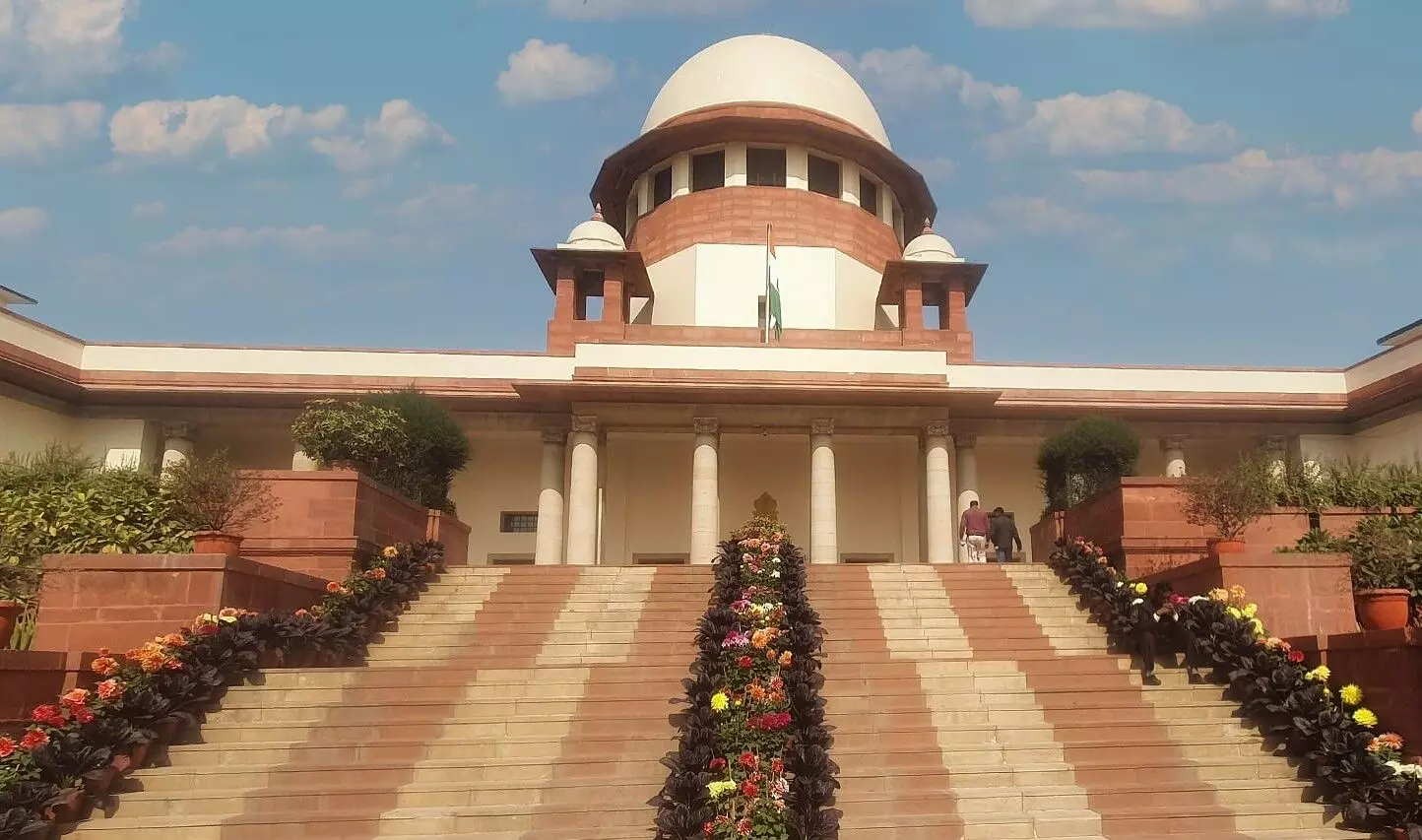Skill scam: Supreme Court posts Chandrababu Naidu’s quash petition to Friday 2 pm
Salve read out Ebha Arjun Jadeja's (2019) case, in which non-compliance with a provision mandating prior sanction was considered fatal to the inquiry under the TADA Act

NEW DELHI: A Supreme Court bench consisting of Justices Aniruddha Bose and Bela Trivedi posted further hearing to the quash petition filed by former Chief Minister Nara Chandrababu Naidu in the skill scam case to Friday.
The bench on Tuesday heard arguments of senior advocates Harish Salve and Mukul Rohatgi on the question posed by the bench on Monday whether Section 17A of the Prevention of Corruption (PC) Act be interpreted in a manner defeating the purpose of the PC Act.
However, Justice Bose wanted Harish Salve to complete his argument so that the bench could hear Mukul Rohatgi, the counsel for AP CID. “I will come back after that. Been waiting for three days,” Rohatgi said, expressing his wish to file a caveat, terming the petition of Naidu as a gross petition. Opposing the move, Salve said that there was no need for a counter affidavit as there were records available.
With the bench granting one hour for Salve to complete his argument, the senior advocate said that the object of the Prevention of Corruption Act was not only to strengthen the law on corruption but also to ensure that it was not abused. Justice Trivedi asked Salve whether 17-A was only procedural, or it would confer any substantive rights.
Presenting before the bench judgment copies of several cases where section 17-A was applied Salve said: “Absence of prior sanction (by the Governor in this case) has always been considered to be fatal to the inquiry. It's not that offenses are eviscerated. The agency will have to procure a sanction and then begin the inquiry. Then they're back on track.”
Referring to Justice (Retd) KM Joseph's separate judgment in Yashwant Sinha's (2019) Rafale case, in which the Supreme Court dismissed Rafale review petitions, Salve said that offenses in the Rafale case related to 2016. “This authoritatively lays down the law,” Salve said referring to Joseph J's opinion. If I'm right, what was the consequence? Application for remand had to be preceded by the Governor's sanction. Before they started inquiring into the role of a public servant, they should have gone and taken permission, Salve said. “This statute does not deal with any rights. Police do not have a right to investigate, but a duty to investigate," he pointed out.
Salve referred to a recent judgment in which it was held that Article 20(1) of the Constitution did not bar retrospective application of procedural changes in a criminal trial. When Salve wanted the bench to have a look at some High Court verdicts, Justice Bose said: “If it's the same proposition that Supreme Court has dealt with, then the SC judgment is good enough.”
Salve read out Ebha Arjun Jadeja's (2019) case, in which non-compliance with a provision mandating prior sanction was considered fatal to the inquiry under the TADA Act. “ Today, we are challenging FIR registered, which is one common rumbled-up FIR,” Salve concluded.
Rohatgi argues
Senior advocate Mukul Rohatgi began his submission with a brief timeline of the case. “ Offences predate the 2018 amendment to the PC Act. Also, not a case of political vendetta because FIR was registered in 2021. In 2023, Nara Chandrababu Naidu was added as an accused when material surfaced," he said. Rohatgi mentioned that Naidu was charged under S 13(1) clauses (c) and (d). His decisions or actions had resulted in immense corruption and loss to the State, he said.
Rohatgi referring to the 17A of the PC Act said that in case of such large-scale corruption and misappropriation ex facie - not prima facie - can never be a part of a recommendation or decision in discharge of official function.
Justice Bela Trivedi asked Rohatgi, if could an FIR be registered for an offense that was no longer an offense under the new act. Rohatgi in reply said “ If there's no limitation, yes. Unless there's a limitation, an offense committed at a particular time is not wiped out.”
When Justice Trivedi reminded him that offenses under S 13(1)(c) and S 13(1)(d) were no longer offenses after the 2018 amendment, Rohatgi said that there was no bar in any law in registering an FIR about an offense that existed, notwithstanding its subsequent deletion. No question of protection would arise in a case where misappropriation of public funds, he said. After a brief lunch break, the bench posted further hearing for Friday.



